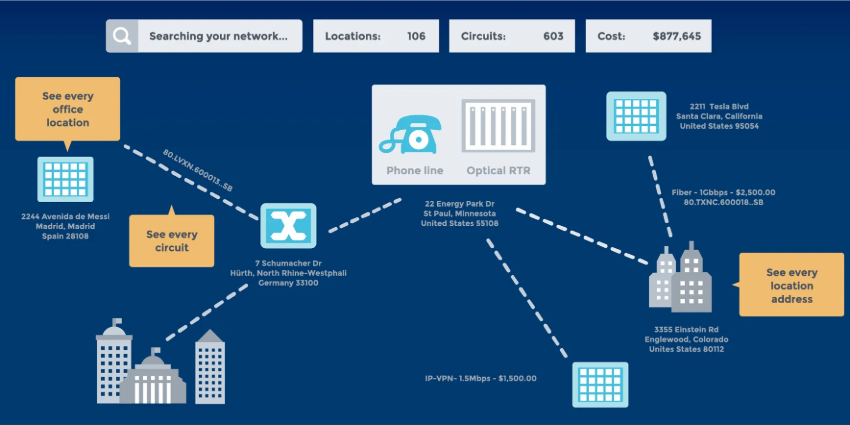The future is here.
Machines have emerged as a vital part of many enterprise productivity strategies. The more they learn, the more they can assist us with everything from informed business decisions to predictive analysis.
According to Gartner reports, numerous companies are beginning to nurture artificial intelligence and machine learning strategies as part of the digital transformation plan. For some organisations, unlocking the possibilities of machine learning means optimising supply chain processes and inventories. For others, the future is in machine learning’s ability to transform employee and consumer experiences.
There’s more to machine learning than chatbots and personalised product suggestions for your customers. Here’s what you need to know.
What is Machine Learning?
Machine learning is a form of artificial intelligence algorithm that allows applications to “learn” from data to become more accurate in their predictions of specific process outcomes. With machine learning capabilities, programs can predict and understand the results of critical company functions, without explicit programming.
Often, the processes used with machine learning involve coding an algorithm that can hunt through data to find patterns. Once an ML tool finds patterns in your information, it can use that data to adjust its behaviour. For instance, a primary example of machine learning is your Amazon.com account. When you log into Amazon, it suggests products based on items you’ve purchased before.
In the communication industry, the most obvious application of machine learning is in the personalisation of customer experiences. Through deep data mining and continuous learning, programs can gain information about a customer and deliver bespoke support without human intervention. Personalisation via machine learning is so compelling that 44% of US customers prefer chatbots to human beings.
Through deep-dive explorations of customer behaviour, machine learning algorithms can teach companies how to reduce churn and retain customers. It’s even possible for companies to automate certain repetitive actions through ML-enabled technologies. For instance, a machine learning service can learn from conversations and dictate where a call needs routing to based on historical information about a customer. We’re already beginning to see virtual agents take over the roles of many old-fashioned IVR menus.
Machine learning solutions also help companies to make proactive decisions about their communication strategies. Through the analysis of trends, companies can build better escalation paths for critical calls, and increase their first-time resolution potential – leading to better customer satisfaction. Organisations may even be able to protect themselves and their customers by fighting back against fraud. ML algorithms can be used to track data and apply recognition patterns to identify suspicious activity.
Machine Learning Trends
Today, more companies than ever before are beginning to leverage the power of machine learning to transform their business processes. Investment in AI and machine learning is expected to reach $100 billion by the year 2025. Already, we’re seeing the results of rapid digital transformations in the form of new trends in the workplace, such as:
1. Machine-Enhanced Customer Conversations
Experience is the most critical consideration for any business in the modern market. For brands to stay ahead of the curve, they need to deliver relevant and engaging experiences to their clients. Machine learning algorithms can gather data about a customer contacting a call centre and ensure that they’re routed to the right department first time around. Tools can even pull up useful contextual information for agents when they answer a call, to improve the quality of the conversation.
When it comes to selling products and services to clients, sales agents will be able to tap into machine learning suggestions based on products the client has purchased before. All the while, machine learning systems can be building their knowledge based on the sentiment and tone in a customer’s voice. This will help businesses to understand how people respond to certain service situations. It could even lead to better agent training.
2. Better Data Collection
Machine learning tools can be taught to collect all kinds of information. For instance, an artificial intelligence bot might be able to analyse the sentiment of your customers based on parameters like tone, volume, and pitch. The technology could then use machine learning to look back over previous conversations and suggest the appropriate responses to end a discussion on a good note.
All the while machine learning services can also be collecting and transcribing information into a database for future insights. Because these tools can adapt to your needs, it’s even possible to build in parameters to ensure that your data collection strategies are compliant with local and federal regulations too.
3. Proactive Reactions to Problems
Machine learning can use the information it gathers from your data to provide insights into your company’s future. When combined with other artificial intelligence tools, the Internet of Things, and even CPaaS technology, your business network could begin to solve problems before you know about it. For instance, imagine an environment where your system can predict potential outages or issues with hardware, and fix them by itself – with no human interaction.
For years, the communication industry has been reactive, but now, proactivity is coming to the forefront. We’ can anticipate customer concerns and enable agents to stay ahead of the curve in issue resolution. As machine learning and data analysis roles become more deeply intertwined, proactive and predictive behaviour in businesses will become even more common.
Machine Learning Statistics
The era of machine learning and artificial intelligence is officially here. Industries of all shapes and sizes are beginning to discover what’s possible when you augment the workforce with artificial intelligence. Machine learning is emerging not as a replacement for human beings, but as a way to make people more productive and efficient at work.
- 800,000 machine learning data chips were in use across global data centres in 2018
- Machine learning platforms in Business Intelligence arenas are growing at a rate of 13% through to 2021.
- Requests for machine learning patents grew at a rate of 34% CAGR between the years of 2013 and 2017
- 61% of organisations consider machine learning and artificial intelligence to be their most significant data initiatives for 2019.
- Forrester believes that Predictive analysis and machine learning will grow at a rate of 21% CAGR for the next 2 years.
- 60% of organisations in the Google and MIT technology review are in varying stages of machine learning adoption.
- IDC believes that machine learning investment will grow to a value of $57.6 billion by 2021
- Netflix saved $1 billion with the use of machine learning to make personal recommendations
- 20% of C-Suite environments are currently using some form of machine learning already
- Machine learning knowledge is one of the most in-demand skills on Monster.com
Machine Learning Hashtags Used on Social Media
- #MachineLearning
- #ML
- #DataScience
- #BigData
- #DeepLearning
- #Robotics
- #Robots







